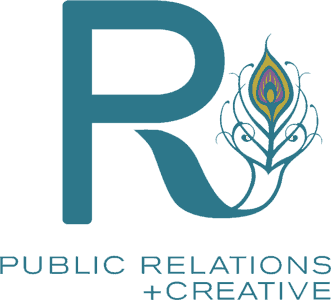PR trends
Building Rapport Through Follow-Up: Relationship-Oriented Approaches With Reporters
In the world of public relations (PR), establishing and maintaining strong relationships with reporters is paramount. Beyond merely pitching stories, the art of building rapport through thoughtful follow-up can transform one-time interactions into lasting partnerships. This article explores relationship-oriented approaches to follow-up, offering practical strategies to enhance engagement with reporters. By understanding their needs, personalizing communication, and maintaining professionalism, PR professionals can navigate the delicate balance between persistence and respect, ultimately fostering more meaningful connections.
Build Rapport by Understanding Reporters' Needs
A deep understanding of reporters' needs is central to any effective PR strategy. This begins with thorough research into their beats, recent articles, and expressed interests. Knowing what a reporter covers, their style, and what they value in a story enables PR professionals to tailor their pitches and follow-ups with precision.
It’s not just about pushing a narrative but aligning your message with the reporter's interests to provide genuine value. This relevance is key to capturing their attention and setting the stage for a productive relationship. Furthermore, demonstrating awareness of their work and showing appreciation for their coverage can make follow-ups more personal and impactful, establishing a foundation of respect and mutual benefit from the outset.
Use Effective Follow-Up Strategies

Timing is everything in follow-up communication. For instance, waiting a week after the initial pitch strikes a balance between giving reporters enough time to consider your story and showing your eagerness to collaborate. The frequency of follow-ups should also be moderated; persistence is crucial, but it should never cross into the realm of annoyance. Personalization in follow-ups demonstrates a genuine interest in building a relationship beyond the transactional. Mentioning specific details from the reporter's work, suggesting how your story could fit into their narrative, or providing additional information that might interest them are ways to show you're paying attention and value their work.
Equally important is offering resources or expertise that can assist in their reporting, whether it's access to sources, detailed reports, or exclusive insights. This helps make your pitch more appealing and positions you as a valuable resource for future stories. Follow-up communications should always respect the reporter's time and preferences, emphasizing brevity and relevance to keep their interest piqued.
Maintain Professionalism to Build Rapport

Professionalism in follow-ups is non-negotiable. This includes respecting the reporter's boundaries, such as their preferred communication method and time. Being clear, concise, and to the point in your communications respects their busy schedules and increases the likelihood of your message being well-received. Acknowledging and adapting to feedback about your pitches or the frequency of your follow-ups can also go a long way in maintaining a positive, professional relationship. This respect for their profession and process underscores your commitment to a partnership rather than a purely transactional interaction.
Leverage Social Media for Engagement
Social media offers an invaluable platform for engaging with reporters in a less formal, more dynamic way. Following their professional accounts, sharing their work, and engaging with their content can foster rapport and keep you on their radar between pitches. This engagement should be thoughtful and genuine, contributing to the conversation meaningfully rather than merely promoting your agenda. Commenting on articles, offering insights, and sharing relevant information can demonstrate your interest in their work and your expertise in your field, further solidifying your relationship.
Social media engagement also allows for real-time interaction, offering immediacy that emails or calls cannot. This immediacy can be particularly beneficial when responding to their queries for sources or insights on breaking news, further cementing your role as a valuable contact. However, it's crucial to balance enthusiasm with professionalism, ensuring that your interactions always respect their boundaries and the professional nature of your relationship. By leveraging social media wisely, PR professionals can nurture a rapport with reporters that is both respectful and productive, setting the stage for successful collaborations.
Building rapport with reporters through strategic follow-up is both an art and a science. By understanding their needs, personalizing your approach, maintaining professionalism, and engaging on social media, you can cultivate lasting relationships that benefit your clients and the media. Adopting a relationship-oriented approach is vital to successful PR.
If you want to learn more about building rapport with reporters, we can help. Reach out to the RPR team for more information.
Mastering Media Pitching Etiquette
Hands down, one of the most integral parts of successful public relations is effective media pitching. The potential value of these types of media relationships is vast. And if done right, proper media coverage can significantly increase your visibility and raise awareness for your brand, product, or cause.
In today's competitive PR and media landscape, standing out from the crowd is more important than ever. The best way to start making noise? Craft a media strategy that allows you to differentiate yourself from competitors. A carefully crafted narrative can inspire action and engagement from your audience. Media coverage can spark meaningful interactions with your brand, whether by driving website traffic, generating leads, or encouraging social media shares.
People tend to trust information they see in the media more than other sources. Securing coverage in reputable media outlets can enhance brand credibility and build trust among a new customer base. It's like getting a stamp of approval from a trusted third party. Media coverage also allows you to position yourself or your organization as a thought leader in your industry. You can demonstrate your expertise and influence within your field by offering expert insights or commentary on relevant topics.
When you successfully pitch a story to the media, you're tapping into their platform and reaching their audience, which can be much larger than your own. The potential for impressions is massive. Effective media pitching requires a targeted approach that ensures your message reaches the right people.
5 Tips for Mastering Media Pitching Etiquette
Here are five tips for mastering media pitching etiquette.
1. Personalize your pitches to each journalist and their beat
Journalists receive countless pitches daily, so standing out is essential. Show that you've done your homework and value their expertise of their beat. Tailor your pitch by everything from your tone of voice to how and when you reach out and through what medium. Some of this intel is available online, but some will need to be gleaned through trial and error. Get to know friendly journalists' communication preferences by scheduling an intro call with them or asking directly. Demonstrating this level of care fosters better relationships with journalists, leading to more organic coverage opportunities in the future.
2. Follow up respectfully
Allowing journalists ample time to review your pitch is crucial for effective media pitching. Patience is key, so plan accordingly and schedule deadlines considering this waiting period. By giving them at least a week to consider your pitch, you demonstrate professionalism and respect for their busy schedules. This approach increases the likelihood of your pitch being noticed and considered and helps build positive relationships with journalists for future opportunities.
3. Don’t be afraid to make a phone call

Don’t underestimate the power of a phone call in media pitching. It allows for direct, personal engagement and can help clarify your pitch or address any concerns in real-time. Plus, it shows initiative and commitment to your story. Don’t overstep boundaries, but don’t be afraid to pick up the phone, especially when first trying to build these contacts and a reputation in the scene!
4. Do some of the legwork
Doing the legwork for journalists is a great way to improve your results. Make it almost impossible for journalists to turn your story away. Offer exclusives, provide all necessary information, grant access to sources, and attach visuals upfront. Anticipate their needs and tailor your pitch to fit their style and audience.
Journalists are always busy and overworked. Make their lives easy — delivering a well-packaged story ready for publication increases the likelihood of coverage and builds trust with journalists. Even if they are looking for something slightly different, there's a chance they’ll still use your story pitch out of convenience. Remember, the easier you make it for them, the more likely they will say yes!
5. Build professional relationships

Building symbiotic professional relationships is essential in effective media outreach. By fostering mutually beneficial relationships, you become a trusted resource for journalists, making them more receptive to your pitches. Plus, maintaining positive relationships ensures ongoing opportunities for coverage and collaboration. Remember, it's not just a transaction — it's about nurturing connections built on trust and respect for long-term success in PR.
Get Started with Media Pitching
Effective media pitching can significantly impact your brand's reputation, visibility, and bottom line. Craft compelling stories, build relationships with journalists, and target the right media outlets. Maximizing your chances of success is all about mastering the etiquette. For help with your media pitching, contact R Public Relations Firm today.
From PR Crisis to Confidence: The Role of Positive Messaging in Rebuilding Trust
In the ever-changing landscape of public relations, a crisis can strike a business at any moment, leaving a brand's reputation hanging in the balance. The aftermath of such situations often leaves a deep dent in the trust that customers, investors, and the general public place in a brand. In these critical moments, the path to redemption is paved with more than just apologies or public statements. It involves a strategic, heartfelt effort to rebuild trust through positive messaging. Here’s how brands can effectively navigate the choppy waters of a PR crisis and emerge stronger, using the power of positive communication.
Understanding the Impact of a PR Crisis

When a PR crisis hits, its impact is immediate and far-reaching. For a brand, the first blow is often to its public image; the carefully curated perception held by its audience can shatter in an instant. Customers, once loyal, may now question their choices, while potential clients might seek alternatives. This erosion of trust doesn't just affect sales or partnerships; it can ripple through every aspect of the business, from employee morale to investor confidence.
The long-term implications are even more daunting. With a swift and effective response, a brand can avoid a permanent scar on its reputation, leading to a steady decline in market presence and relevance. Understanding the severity of these consequences is the first step towards crafting a response strategy that addresses the immediate fallout and lays a foundation for rebuilding and strengthening the damaged trust.
The Foundation of Trust Rebuilding
The unwavering commitment to transparency and honesty is at the heart of rebuilding trust. In the wake of a PR crisis, a brand's first action should be an open acknowledgment of the situation. This includes taking full responsibility rather than deflecting blame or minimizing the issue.
Equally important is showing genuine empathy. Brands need to demonstrate that they understand and care about the impact of the crisis on their stakeholders. This empathetic approach should not be viewed as a one-off statement but as a vital, consistent theme in all communications following the crisis. It's about weaving empathy into the fabric of every message, ensuring that each statement, response, and action the brand takes resonates with understanding and sensitivity. This is not just about what is said but also how it is said. The tone, the choice of words, and the manner of delivery all play a crucial role in demonstrating empathy.
Moreover, this foundation of transparency, responsibility, and empathy sets a decisive stage for effective positive messaging. It signals to the audience that the brand's intentions go beyond mere damage control. It's about genuinely acknowledging the issue and showing a proactive commitment to making amends and improving. This approach helps transform the narrative from fault and failure to learning, growth, and genuine commitment to doing better.
Strategies for Positive Messaging

When it comes to positive messaging, the content and tone of the communication are crucial. Here are some strategies:
Forward-Looking Optimism
Messages should focus on the future and how the brand is taking steps to prevent similar issues. This includes concrete plans, policy changes, or initiatives demonstrating commitment to improvement.
Consistency in Communication
Consistent messaging across all channels ensures the brand speaks with one voice, reinforcing trust and credibility.
Engaging Stakeholders
Involve customers, employees, and partners in the recovery process. Solicit feedback, listen to concerns, and actively show that the brand values their input.
Highlighting Positive Actions
Share stories and examples of positive actions taken post-crisis. This could be community support initiatives, enhanced customer service efforts, or internal reforms.
Educational Content
Provide content that educates the audience about the steps taken, the reasons behind them, and how these contribute to a better future for all stakeholders.
Regular Updates
Keep stakeholders informed about progress and developments. This ongoing communication can help rebuild trust over time.
By integrating these strategies, a brand can craft messages that address the crisis and turn the narrative into one of growth and resilience.
Maintaining the Momentum after a PR crisis

Rebuilding trust is not a one-time effort; it requires ongoing commitment and action. To maintain the momentum, brands should regularly engage with their audience through various channels, social media, email newsletters, or community events. This continued engagement helps to keep the conversation around the brand positive and forward-looking. Additionally, brands should consistently monitor public sentiment and be ready to address any concerns or feedback proactively. This approach shows that the brand is not just reactive during a crisis but is actively involved in fostering a positive relationship with its stakeholders.
Navigating a PR crisis and rebuilding trust is undeniably challenging, but it's also an opportunity for growth and strengthening relationships with stakeholders. By focusing on transparent, empathetic, and positive messaging, brands can turn a crisis into a catalyst for improvement. The art of redemption lies in how effectively a brand communicates its commitment to change and its dedication to its audience. Embracing this art can restore lost trust and lead to a more robust and respected brand image in the long run.
PR Trends: What’s In and What’s Out for 2024
In the fast-paced world of public relations (PR), staying ahead of the curve isn't just an advantage; it's a necessity. As we embrace 2024, the PR landscape is undergoing a seismic shift, influenced by rapid technological advancements and evolving consumer behaviors. For businesses and brands, understanding which trends are ascending and which are declining is crucial for maintaining relevance and effectiveness. In this insightful exploration, we'll delve into the top PR trends to watch in 2024, pairing each emerging trend with a fading one to provide a clear perspective on the evolving PR world.
The Rise of Micro-Influencers Versus Celebrity Endorsements

IN: Micro-Influencers in PR
In 2024, the PR spotlight shines on micro-influencers. These individuals, though they may have smaller followings, wield significant influence within their specific niches. Their power lies in their authenticity and high engagement rates. PR campaigns are increasingly leveraging these micro-influencers for their ability to foster deep, genuine connections with their audiences, making them invaluable for brands targeting specific demographics or interests.
OUT: Celebrity-Only Endorsements
The era of depending exclusively on celebrity influencers is waning. While celebrities still hold sway, their impact is often diluted due to their broad and diverse followings. Brands recognize that the sheer size of a celebrity's following doesn't guarantee meaningful engagement, leading to a shift towards more relatable and niche-focused micro-influencers.
New PR Trend for 2024: The Rise of Data-Driven Strategies

IN: Data-Driven PR
Data is the new cornerstone of PR strategies in 2024. Using advanced analytics tools, PR professionals can track campaign performance, understand audience behaviors, and measure message impact precisely. This approach allows for informed decision-making, enhancing the effectiveness of campaigns and enabling the prediction of future PR trends.
OUT: Guesswork and Intuition
The days of basing PR decisions on guesswork or gut feeling are fading. While intuition still plays a role, it's no longer the primary driver in PR strategy development. Data-driven insights replace hunches, leading to more targeted and successful PR campaigns.
The Rise of Video Content as a PR Trend in 2024

IN: Video Content in PR
In 2024, there will be a continued rise in the dominance of video content in the digital PR space. The power of video lies in its ability to convey messages through dynamic and engaging visual storytelling. Brands increasingly incorporate video into their PR strategies, utilizing various formats like behind-the-scenes clips, product demonstrations, and narrative-driven pieces to capture and retain audience attention.
OUT: Text-Dominant Content
The overemphasis on text-based content is becoming a thing of the past. While written content still holds importance, it's no longer the sole focus. The shift towards visually engaging content, especially video, is evident, as it often resonates more effectively with modern audiences.
Podcasts as a PR Medium Versus Traditional Media
IN: Podcasts in PR
In 2024, podcasts have become a crucial medium in the PR arsenal. Podcasts offer a unique blend of depth and personal connection, allowing for in-depth discussions, interviews, and storytelling that traditional media formats often can't match. By featuring industry-relevant podcasts or even starting their own, brands can establish thought leadership and build a loyal audience base.
OUT: Traditional Media Reliance
The overreliance on traditional media formats such as print and TV is declining. While these mediums still play a role, the increasing preference for digital content that audiences can consume on their own terms — like podcasts — is reshaping the PR landscape.
Agile and Adaptive PR Strategies Versus Rigid, Long-Term Campaign Planning

IN: Agile PR Strategies
Adaptability and agility define PR in 2024. PR strategies, recognizing the fast-paced and often unpredictable nature of the digital world, now emphasize flexibility and the ability to pivot quickly. This agile approach allows brands to respond promptly to market changes, consumer trends, and global events, ensuring their messaging remains relevant and impactful.
OUT: Rigid Campaign Planning
Gone are the days when PR campaigns were set in stone months in advance. The rapidly changing digital landscape has rendered such rigid, long-term planning less effective. In its place, a more dynamic and responsive approach to PR strategy has emerged, prioritizing real-time adjustments over set-in-stone plans.
Today’s PR trends, from the rise of podcasts and micro-influencers to agile and data-driven strategies, are shaping a new future for public relations. Conversely, we're witnessing the decline of once-dominant trends like sole reliance on celebrity endorsements and traditional media formats.
For businesses and brands, understanding and embracing these shifts is not just about staying competitive; it's about leading the way in innovative and effective communication. As we navigate this ever-changing terrain, the opportunities for growth and connection are boundless. So, let’s embrace these new trends, experiment with fresh strategies, and witness how they can transform our PR efforts, helping us forge more robust, meaningful connections in this dynamic digital age.
If you want to learn more about leveraging these new 2024 trends for your brand or business, we can help. Reach out to our team for more information.
Mastering Business Storytelling in Five Steps
Business storytelling is crucial for any brand aiming to build a long-standing and, more importantly, lucrative relationship with its target audience. Business storytelling is the art of narrating your company's journey, values, and purpose in a compelling and relatable way. It's all about using the power of storytelling to convey your brand's identity and engage with your audience at an emotional level. In a crowded market, storytelling sets your company apart, making your message more memorable and impactful, and it’s one of the most effective means of communication when it comes to growing your brand.
Traditional advertising is evolving, and consumers crave more than product features in a digital culture overwhelmed with content. Consumers want a story they can connect with. Whether through a TV commercial, social media campaign, or print ad, storytelling humanizes your brand, significantly increasing the effectiveness of your marketing efforts.
Business storytelling is also an excellent opportunity to spotlight the employees who are integral to your company's story. Incorporating and celebrating your employees is great for your brand’s reputation and helps create a sense of belonging and purpose among your team. Sharing success stories, milestones, and the vision for the future fosters a positive and motivated workplace culture.
Business storytelling is a dynamic and versatile tool that can be applied across various facets of your business. In a world inundated with information, it's not just about what you say but how you say it. Through compelling storytelling, you can create an experience that resonates with your audience and sets your brand apart. Here are five steps to get you on your way to mastering business storytelling:
1. Understand Your Audience

Crafting a storyline for your business that can be easily adapted into various mediums and easily interpreted by your target demographics requires a complete understanding of your audience. This doesn’t mean altering your brand’s identity; it’s all about understanding how to most effectively portray your brand’s identity in a manner that resonates with your audience emotionally and intellectually.
Once you clearly understand your audience, tailor your stories to address their needs and interests. Whether it's customers, investors, or employees, your narrative should be relatable and speak directly to the concerns and aspirations of your audience. This level of personalization makes your story more compelling.
For instance, if your audience values sustainability, emphasize your company's eco-friendly practices and initiatives. If they are more interested in innovation, highlight how your business pushes boundaries in your industry. The key is making your audience feel seen and understood through your company’s story.
2. Craft a Compelling Narrative
Your business’s narrative should encapsulate the essence of your brand, conveying not only what you do but why you do it and how it impacts your customers, employees, and the world at large. Build the narrative by introducing a conflict or challenge. This could be a problem your company faced, a market gap you identified, or an obstacle you overcame.
What challenges did you face in the beginning? How did you overcome them? What values drive your decisions? Who are the people behind the scenes, and what motivates them? Dive deep into these questions—highlight the struggle, but keep it relevant. Then, present your business as the solution to this problem.
Effective business storytelling taps into the emotional aspect of marketing. Don’t be afraid to get a little cheesy or sentimental. Rather than just delivering information, make your audience feel something. Whether it's excitement, empathy, or inspiration, evoking emotions creates a memorable connection to your brand. People may forget statistics, but they will remember how a story made them feel.
3. Be Authentic

Today's consumers are savvy; they can spot insincerity from a mile away. Authenticity in storytelling means being true to your brand's identity and values. That’s why sharing more than just the successes is so important. Include stories about the challenges and lessons learned along the way, too. By being authentic, you build trust with your audience, fostering a customer base for the long haul.
Through storytelling, you bridge the gap between your brand and your audience, creating a connection beyond a transactional relationship. This is not the place to advertise products or services. Business storytelling is a chance to show you are more than just a profit-seeking business. It’s a great way to demonstrate your company’s commitment to your community and the causes you support.
Even in challenging times, storytelling plays a role. It helps humanize your company's crisis response, showing empathy and sensitivity. By framing your actions within a narrative, you can improve customer sentiment even in difficult situations.
4. Utilize Multimedia Platforms
In the digital age, storytelling goes beyond words on a page. Leverage multimedia elements to enhance your narrative. Use visuals, such as images and videos, to bring your story to life. A well-crafted video or a compelling infographic can significantly amplify the impact of your storytelling and reach wider audiences.
Remember to adapt your storytelling strategy to suit each platform. Repurpose the same story in different formats to maximize reach and engagement. Consistency across platforms helps reinforce your brand narrative.
5. Seek Feedback

The art of storytelling is an evolving process. Once you've shared your stories, seek feedback from your audience. Read the comments and pay attention to what resonated and what didn't. Use this information to refine your storytelling strategy.
This step is not a one-time effort—it's an ongoing improvement cycle. Be attentive to changes in your industry, market trends, and shifts in consumer behavior. Your storytelling needs to adapt to remain effective. An agile and responsive storytelling strategy keeps your brand narrative relevant.
To summarize, mastering business storytelling involves understanding your audience, crafting a compelling narrative, embracing authenticity, utilizing multimedia platforms, and continuously seeking feedback. Incorporating these steps into your PR strategy will captivate your audience and build an enduring connection with them. Remember, the best stories don't just tell; they engage, inspire, and leave a lasting impact.
If you need some help getting started on your storytelling journey, reach out to our experienced team!
Unraveling the Challenges: 7 Reasons Why Public Relations (PR) Sometimes Falls Short
Public relations (PR) is a valuable tool in managing and enhancing an organization's reputation. However, there are instances where PR efforts to shape public perception or build lasting relationships may not yield the expected results. Here are seven key reasons why public relations sometimes falls short and ways to address these challenges for a more effective communications strategy.
1. Lack of Clear Public relations (PR) Objectives

At the heart of any successful public relations campaign lies a set of well-defined and achievable objectives. When PR professionals are not armed with clear goals, the entire strategy can meander aimlessly, making it difficult to measure success or demonstrate the impact of their efforts. Organizations must invest time articulating specific, measurable, and realistic objectives to overcome this challenge.
Emily Reynolds Bergh, founder of R Public Relations + Creative, is a consummate marketing and public relations pro with over 15 years of experience delivering personalized, top-caliber PR services to diverse clients, particularly in the hospitality, business, and technology spaces. Bergh explains, “Whether it's enhancing brand awareness, managing a crisis, or fostering community engagement, having a crystal-clear roadmap ensures that every PR initiative contributes meaningfully to the organization's overarching goals.”
2. Ineffective Communication Strategy

Public relations is fundamentally a communication discipline, and the success of any communication strategy hinges on its effectiveness. If the messaging is unclear, inconsistent, or fails to resonate with the target audience, the PR efforts will likely fall flat.
Developing an effective communication strategy involves understanding the intricacies of the audience—their needs, preferences, and communication channels. Tailoring messages to align with the audience's interests and concerns fosters a stronger connection. PR professionals should also remain vigilant about adjusting their strategies as they receive feedback and insights from the audience to ensure ongoing resonance.
3. Ignoring Stakeholder Perspectives
Effective public relations is not a one-way street; it involves a dialogue with various stakeholders. Neglecting or dismissing the perspectives and concerns of these stakeholders can undermine the credibility and support crucial for PR success. It is essential to identify key stakeholders, understand their expectations, and actively involve them in the communication process.
Whether it's customers, employees, investors, or the community, their viewpoints should be acknowledged and integrated into PR strategies. By prioritizing stakeholder perspectives, organizations can build trust and create a more authentic and mutually beneficial relationship with their audience.
4. Failure to Adapt to Changing Circumstances
The business and media landscape is dynamic, with constant shifts in trends, crises, and public sentiment. Rigid public relations strategies that fail to adapt to these changes may miss the mark. It's imperative for PR professionals to stay attuned to emerging trends, monitor public sentiment, and be ready to adjust their strategies accordingly.
A proactive approach involves scenario planning and crisis preparedness, enabling organizations to swiftly navigate unforeseen challenges. By embracing adaptability, PR efforts can remain relevant and effective in an ever-evolving external environment.
5. Insufficient PR Resources
Successful public relations initiatives demand resources: skilled personnel, time, and budget. When organizations fail to allocate adequate resources to their PR activities, the consequences can be dire. A lack of investment may diminish the capacity to implement a comprehensive and impactful strategy. Recognizing that PR is an investment in building and safeguarding an organization's reputation is essential.
Adequate resources empower PR professionals to engage with the audience effectively, respond to challenges, and capitalize on opportunities. Whether training personnel, dedicating time for strategic planning, or allocating a budget for media outreach, investing in PR resources is fundamental to success.
6. Lack of Consistent Brand Messaging

Consistency is key in public relations, and a lack of coherent and consistent brand messaging can hinder success. When messages are disparate or contradictory, confusion ensues among the audience, eroding trust and diluting the intended impact. A robust brand messaging strategy involves aligning all communication efforts with a central narrative that reflects the organization's values, mission, and unique selling propositions.
It's important to ensure that messages conveyed through various channels—be it social media, press releases, or marketing materials—are harmonized. Organizations can reinforce their brand identity by maintaining a unified voice and making a lasting impression on their audience.
7. Inadequate Measurement and Evaluation: The Blind Spot in Public relations (PR) Strategies
Another significant challenge in public relations is the lack of robust measurement and evaluation mechanisms. Without a structured approach to assess the impact of PR efforts, organizations may find it challenging to gauge their success, learn from their experiences, and make informed adjustments. Implementing key performance indicators (KPIs) and regularly evaluating the outcomes of PR campaigns are critical steps.
Metrics such as media coverage, audience engagement, and sentiment analysis can provide valuable insights into the effectiveness of PR strategies. By leveraging data-driven insights, organizations can refine their approaches, optimize their messaging, and continually enhance the impact of their public relations initiatives.
While public relations can be a powerful force for shaping public perception, it is not immune to challenges. Clear objectives, effective communication strategies, stakeholder engagement, adaptability, and adequate resources form the pillars of successful PR initiatives. By addressing these challenges head-on, organizations can unlock the full potential of public relations and foster positive relationships with their audience. In the always-changing communication landscape, the ability to navigate challenges sets apart impactful PR campaigns from the rest.
At RPR Firm, we have a team of PR professionals with the skills and experience to help you create successful public relations strategies and avoid pitfalls. Schedule a free consultation with us today.
Building Brand Awareness: Discover the Synergy of PR and Marketing Strategies
In the challenging and competitive world of business, building brand awareness is the linchpin for success. Success lies not only in crafting a recognizable brand but also in ensuring that the brand resonates with the target audience. And although it might sound simple, there is no hard and fast method for building brand awareness that works for every business. Instead, brand awareness work requires business acumen, a deep understanding of your products, services, and audiences, and experience in public relations and marketing.
To navigate this intricate landscape, professionals often turn to public relations (PR) and marketing teams, two distinct yet interwoven verticals. In this article, we'll explore the nuances of each and delve into unique tactics to elevate brand awareness while better understanding the symbiotic relationship between PR and marketing.
Differentiating PR and Marketing in the Pursuit of Brand Awareness
Public relations and marketing, though aligned in many ways, operate through different lenses. Marketing is about promoting products or services, focusing on sales and lead generation. It utilizes advertising, content creation and promotion, and digital strategies to reach consumers directly.
On the other hand, public relations is more about managing relationships, reputation, and communication with various stakeholders. PR aims to shape public perception through media coverage, events, and other non-paid channels.
The convergence of PR and marketing is vital for comprehensive brand building. A strategic and holistic plan ensures a unified and resonant brand narrative and consistency across all channels.
PR Strategies for Building Brand Awareness
1. Influencer Partnerships with a Purpose

In the age of social media dominance, influencers wield significant power. However, the key to great influencer partnerships is not just reaching audiences but doing so authentically. PR professionals can identify influencers whose values align with the brand and nurture meaningful partnerships. That way, when content is published, it feels organic for both parties. This authenticity fosters trust among followers, translating into heightened brand awareness.
2. Strategic Event Sponsorships
Events, whether physical or virtual, provide a platform for direct engagement. PR specialists can strategically select events that align with the brand ethos and values. Sponsoring or participating in these events enhances visibility and credibility, creating lasting impressions in the minds of the target audience. It also gives the brand a physical presence and helps consumers remember it down the line.
3. Compelling Storytelling Through Media Relations
Media coverage remains a primary and necessary tool for building brand awareness. PR professionals can craft compelling narratives about the brand's journey, innovations, breaking news, or social impact. These stories, when strategically pitched to media outlets and journalists, enhance brand credibility and help the brand name and story reach a broader audience than through just owned channels like email and social media.
4. Community Engagement Initiatives
Once a foundation is built, improving brand awareness must extend beyond traditional channels. Broader PR strategies can include community engagement initiatives that showcase the brand's commitment to social responsibility, like hosting volunteer events, donating to local causes, or working for non-profits pro bono. This involvement not only enhances the brand's image but also fosters a sense of community, creating a loyal customer base.
Marketing Tactics
1. Search Engine Optimization (SEO) Magic
To boost online visibility, marketing professionals must master the art of SEO. Crafting content around relevant keywords, optimizing website structure, and earning backlinks are crucial to showing up at the top of search queries. Regularly updating content ensures the brand remains visible in search engine results, driving organic traffic and building brand awareness.
2. Engaging Social Media Campaigns

Social media is a playground for brand visibility. Marketing experts can design engaging campaigns that leverage the interactive nature of platforms like Instagram, Twitter, and TikTok. By creating shareable, authentic content and encouraging user participation, brands can amplify their reach and foster a sense of community.
3. Content Marketing Mastery
These days, content is king, and marketing professionals must produce it with finesse. Creating high-quality, valuable content not only establishes the brand as an authority in the field but also provides shareable assets for many platforms. Internal teams can reuse great content in emails, on the website, in presentations, and at events, and consumers can then reshare said content, reaching even larger audiences. From blog posts and videos to infographics, diverse content caters to varied audience preferences.
4. Email Marketing Precision

In the era of personalization, email marketing remains a powerful tool. Marketing professionals can curate targeted email campaigns to their owned audiences, delivering relevant content directly to the inboxes of potential customers. This personalized approach fosters a connection and keeps the brand at the forefront of the audience's mind over days, months, and years.
The Synergy of PR and Marketing for Building Brand Awareness
Collaboration between PR and marketing teams is the secret sauce for unparalleled brand awareness. PR lays the foundation by shaping perception, building credibility, and fostering relationships. Marketing, in turn, takes the crafted brand image and amplifies it through strategic campaigns, ensuring widespread visibility. In a world inundated with information, both PR and marketing play unique roles in breaking through the noise.
The Power of a Unified Approach
In the pursuit of building brand awareness, PR and marketing are not mutually exclusive but rather indispensable partners. Integrating both strategies ensures a comprehensive and cohesive approach to brand building, where authenticity meets visibility, creating a lasting impression in the minds of consumers. Embrace the duo and witness the transformation of your brand awareness into a formidable competitive advantage.
Crafting an Effective PR Message: A Step-by-Step Guide
In the public relations industry, the ability to craft an impactful PR message is crucial. Whether you're representing a brand, company, or individual, the messages you convey shape perceptions and influence stakeholders. Slipshod copy without exceptional thought, research, and care won’t get you far. This step-by-step guide delves into the art of developing PR messaging that not only resonates but also leaves a lasting impression with stakeholders across the board, from journalists to potential customers or investors.
The Foundation: Understanding Your Audience

Before diving into the message creation process, PR pros must have a comprehensive understanding of their target audience. Who are they in terms of gender, age, and geographic location? What are their interests, values, and pain points? Tailoring your message to resonate with your audience is the first crucial step in effective communication.
There are several effective ways to gather information about your audience. Start with user research. Email engaged audience members a survey with the chance to enter a drawing or reach out directly to your most loyal customers. You can also set up a post-purchase survey for all customers. Frequently take a look at marketing analytics data on social media and digital platforms to understand the breakdown of your online audience. You can also have one-on-one interviews, write case studies, and seek out psychographic data to inform your approach and language.
SEO Integration: Making a PR Message Work for You
To optimize your online visibility and reach, strategically incorporate keywords and phrases into your content. Sprinkle them organically throughout your messaging to enhance search engine rankings and make your work more discoverable. Remember, effective SEO is about seamless integration, so aim for a balance that maintains the flow and readability of your content.
Crafting Exceptional Messaging
Once you’ve laid the groundwork for great messaging, it’s time to dig in. Follow our step-by-step guide to ensure your PR messages are on point every time.
Step 1: Define Your Objective
Every PR message should have a clear objective. Whether it's to enhance brand awareness, mitigate a crisis, or promote a new product, a well-defined objective is a guiding light throughout the message creation process. Keep your objective in mind as you begin writing, ensuring that every element of your message aligns with your overarching goal. Also, be sure to weave your main objective into the message early on — ideally, in the first or second sentence.
Step 2: Craft a Compelling Narrative

Humans are naturally drawn to stories. To make your PR message memorable, weave a compelling narrative that engages emotions and resonates with your audience. Whether you're highlighting a brand's journey, a client's success, or a groundbreaking product, storytelling adds a personal touch that fosters connection.
SEO Tip: Utilize Long-Tail Keywords
Incorporate long-tail keywords related to your message to enhance your SEO strategy. Long-tail keywords provide specificity and help your content rank higher for niche search queries. For example, if your PR message is about a sustainable fashion initiative, include long-tail keywords like "eco-friendly fashion movement" or "sustainable clothing campaign."
Step 3: Keep It Clear and Concise
In the age of information overload, brevity is critical. Craft your PR message with clarity and conciseness in mind. Avoid overused or difficult-to-understand jargon, and distill complex ideas into simple, digestible language. Aim for a message that can be understood at a glance while still conveying depth, substance, and authenticity.
Step 4: Emphasize Unique Selling Points
Highlight what sets your brand or client apart. Whether innovation, sustainability, or exceptional service, emphasizing unique selling points adds value to your PR message. Clearly communicate what makes your brand or client distinctive and why your audience should take notice.
Step 5: Inject Creativity for Catchiness

To make your PR message stand out, inject creativity into your communication strategy. Whether it's through compelling visuals, memorable taglines, or interactive elements, creativity grabs attention and fosters a positive brand image. Don't be afraid to think outside the box to leave a lasting impression on your audience and improve the chances of securing press coverage if that’s one of your goals.
SEO Final Touch: Optimize Images and Alt Text
Images and alt text can contribute to PR messaging, too! Optimize images with relevant file names and alt text to improve accessibility and SEO and to help fill in messaging gaps. Use descriptive alt text that includes your key phrase to provide context to search engines and readers and enhance the discoverability of your visual content.
Bringing It All Together for an Effective PR Message
Crafting an effective PR message requires a strategic blend of audience understanding, storytelling, clarity, uniqueness, and creativity. By integrating these elements, you'll not only captivate your audience but also enhance your online visibility and impact. Mastering the art of PR messaging is an ongoing process, so continue to analyze results, edit often, adapt to industry trends, and refine your approach for continued success.
Or, to learn how our team of experts can help with your PR messaging, schedule your free consultation today!
How PR Helps Entrepreneurs Grow Their Business
In the dynamic and competitive world of entrepreneurship, building a successful business requires more than just a great product or service. It demands effective communication, strategic branding, and a positive public image. That’s where public relations (PR) comes in. Understanding how PR works can be a game-changer for entrepreneurs navigating the complex business landscape. Here are five ways PR can help entrepreneurs succeed.
1. Build Credibility and Trust

One of the most significant contributions of public relations to an entrepreneur's journey is the establishment of credibility and trust. Consumers are more likely to engage with a brand they perceive as credible and trustworthy. PR professionals can shape a positive narrative around your business through well-crafted press releases, media interactions, and strategic storytelling. Positive coverage in reputable publications, testimonials from satisfied customers, and endorsements from influencers all contribute to building a solid foundation of trust in the eyes of your target audience.
In the age of digital influence, endorsements from influencers carry considerable weight. Strategic partnerships with influencers who align with the brand's values can amplify its reach and credibility. These influencers, often considered authorities in their respective niches, have cultivated trust with their followers. When they endorse a product or service through their channels, they extend that trust to the endorsed brand, making it more appealing and trustworthy to their audience.
Media interactions are another integral facet of this narrative-building process. By engaging with journalists and media outlets, entrepreneurs can present their stories in a compelling and authentic manner. Whether through interviews, features, or expert opinions, these interactions help humanize the brand, making it more relatable and, consequently, trustworthy in the eyes of the public.
2. Create Brand Awareness with Strong PR Strategies

In the crowded marketplace, standing out is a constant challenge for entrepreneurs. PR plays a pivotal role in creating and maintaining brand awareness. By securing media coverage, participating in industry events, and leveraging social media, public relations helps entrepreneurs amplify their brand message. Whether it's a feature article in a leading publication, a well-executed social media campaign, or a thought leadership piece in a relevant industry blog, these PR strategies increase your brand's visibility and position it in the minds of potential customers.
3. Attract Investors and Partnerships
Entrepreneurs often need financial support and strategic partnerships to scale their businesses. PR can significantly influence potential investors and collaborators by showcasing the business in a positive light. A well-crafted PR strategy can highlight key achievements, milestones, and the overall potential of the venture. This positive exposure attracts investors and opens doors to valuable partnerships, collaborations, and networking opportunities that propel the business forward.
PR is a strategic bridge between entrepreneurs and the resources critical for scaling their businesses. It transforms the business's narrative into a compelling story that resonates with investors and collaborators alike. By emphasizing achievements, milestones, and the overarching potential of the venture, PR not only attracts financial support but also creates an environment ripe for forging strategic partnerships and cultivating a network that propels the business forward.
4. Manage a Company’s Reputation in a Crisis
No business is immune to challenges, and how a company navigates crises can define its future. PR is instrumental in managing a business's reputation during difficult times. Effective communication is vital, whether addressing a product recall, responding to negative reviews, or handling a public relations crisis.
PR professionals can develop crisis management plans, provide guidance on messaging, and help the entrepreneur navigate the storm while minimizing damage to the brand. Timely and transparent communication can turn a crisis into an opportunity to showcase the business's commitment to integrity and customer satisfaction.
5. Promote Thought Leadership as an Entrepreneur

Positioning yourself as a thought leader in your industry not only boosts your personal brand but also adds credibility to your business. PR can help entrepreneurs share their expertise and insights through various channels, such as guest articles, speaking engagements, and expert interviews.
Entrepreneurs can become go-to experts in their field by consistently contributing valuable content to industry conversations. This not only enhances the reputation of the individual entrepreneur but also elevates the standing of the entire business, making it a recognized authority in the industry. This practice is not merely a means of self-promotion; it is a deliberate effort to share expertise, address industry challenges, and contribute meaningful insights to the collective knowledge base.
As entrepreneurs contribute valuable content, they become a reliable source of information, advice, and innovation within their industry. This consistency builds trust among peers, competitors, and, most importantly, their target audience. By sharing their expertise openly and transparently, entrepreneurs demonstrate a commitment to the growth and advancement of the industry.
Public relations is a powerful tool that entrepreneurs can leverage to propel their businesses to new heights. From establishing credibility and building trust to creating brand awareness, attracting investors, managing reputation, and facilitating thought leadership, PR is a multifaceted strategy that can significantly contribute to the success of an entrepreneurial venture. As entrepreneurs navigate the complexities of the business world, incorporating a well-thought-out PR strategy can make all the difference in creating a positive public image, fostering growth, and ultimately achieving long-term success.
Help with PR for Entrepreneurs
At RPR Firm, we have a team of PR professionals with the skills and experience to help you create successful public relations strategies to grow your business. Schedule a free consultation with us today.
Unlock the Power of Corporate PR: Expert Tips for Startups
As a startup owner, you may already know that building your brand and making a name for yourself in your industry is crucial for success. One of the best ways to do this is through effective corporate public relations (PR).
This post will give you a brief overview of corporate PR and its importance for startups. We'll also delve into the critical components of an effective PR strategy in 2023. Additionally, we'll analyze how corporate PR has evolved this year. And what we can expect in 2024 based on expert predictions and forecasts. Whether you're just starting out or looking to take your startup to the next level, read on to unlock the power of corporate PR.

Understanding Corporate PR: A Brief Overview
PR is crucial to establishing and managing a company's reputation and public image. The practice involves strategic communication aimed at various target audiences, and PR professionals utilize a range of tools to achieve these goals, including social media, content marketing, and media relations. By employing different communication strategies, they ensure that the company's reputation is maintained and that it engages with the general public.

How Has Corporate PR Changed in 2023?
Corporate PR has seen some shifts in 2023. Crisis management on social media has become a priority, along with focusing on corporate social responsibility and brand awareness. Expanding target audiences require PR departments to adapt their communication strategies.
Crisis Management on Social Media
PR professionals regularly leverage critical thinking skills to anticipate potential crisis scenarios. In today's digital landscape, news moves faster than ever across a wide-ranging suite of platforms. PR teams — especially those in the startup space — must consider global, regional, and local news and crises on a daily basis to determine the best path forward for their business. Every post, statement, and article can be taken out of context if published at the wrong time or on the wrong social platform. Daily critical, forward-thinking brainstorming sessions can keep new businesses on track while establishing their brand. When used intelligently, social media can even act as a valuable tool for quick statement distribution.
Corporate Social Responsibility
By staying up-to-date with industry trends, PR professionals can navigate the ever-evolving communications landscape and proactively address any challenges that may arise. Corporate responsibility has shown up in a big way in 2023, and PR professionals can expect to see more in 2024. Not only do social responsibility campaigns improve internal employee satisfaction rates, but they offer a compelling narrative for external storytelling.
Brand Awareness Across Platforms
PR departments now prioritize content creation for website copy and social media posts to engage effectively with multiple target audiences. In the past, media relations was a stronger focus. With this new emphasis on “owned” media, or content published on platforms that the brand controls, there’s an ever-growing need for excellent writers and storytellers to help make brands stand out in the market. Integrating content marketing skills and storytelling strategies into their daily practices allows PR teams to build and maintain their company's brand awareness.

What Can We Expect from Corporate PR in 2024?
In 2024, corporate PR will focus on managing company reputation and enhancing brand awareness through content marketing. PR professionals will utilize a multi-channel approach, including email campaigns and social media strategy, to reach their target audience effectively and consistently.
Emphasis on Reputation Management and Brand Awareness
In the upcoming year, PR professionals will prioritize internal communication strategies to provide valuable resources for employees. Internal employees, in fact, play a crucial role in crisis communications and can act as emergency responders when needed. That being said, the need for transparency from leadership and buy-in from team members is higher than ever. Internal communications should be treated as high-priority, and employees should receive news and updates before the general public. Team member word of mouth can be a powerful, positive PR tool.
Multi-Channel PR Strategies
To engage new potential customers, PR teams will utilize a wide variety of communication channels. This includes leveraging traditional media coverage to ensure the company's brand and reputation are positively portrayed. As well as using new social media channels like TikTok and Lemon8. The resurgence of legacy channels like email and YouTube, and the return of live events. With so much variety on their plates, successful PR professionals will need vast technical skills and expertise in organizational communication in 2024.
Getting Started with Corporate PR for Your Startup
Corporate PR plays a crucial role in shaping the image and reputation of businesses, large and small, but especially new startups. By building a solid brand, enhancing credibility, engaging with target audiences. And effectively managing crises, startups can establish themselves as industry leaders early on.
In the ever-evolving PR landscape, staying on top of the latest trends is essential. Looking ahead to 2024, experts predict that corporate PR will continue to be driven by digital strategies and content marketing. If you're looking for guidance and support in navigating the world of corporate PR, don't hesitate to get in touch with our team. We are here to help you unlock the power of corporate PR for your startup's success.










